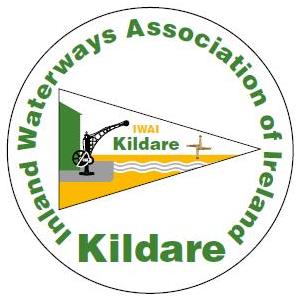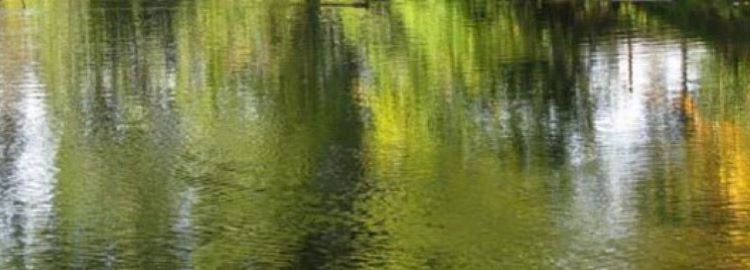GENERAL MARINE NOTICE
No. 95 of 2024 Sep 23 2024
DOT – New Code of Practice for Safe Operation of Recreational Craft
Waterways Ireland wishes to inform all Masters of vessels that the Department of Transport in Ireland has published a new and revised Code of Practice for the Safe Operation of Recreational Craft. This is an important guidance document for all Masters, Owners and Users of recreational craft. The text of Department of Transport Marine Notice No. 54 of 2024 is as follows:
Marine Notice No. 54 of 2024 Notice to all Masters, Owners and Users of Pleasure and Recreational Craft.
The Department of Transport wishes to draw attention to the publication of a revised and updated edition of the Code of Practice for the Safe Operation of Recreational Craft. The Code of Practice contains legislative information, safety advice and best practice operational guidance for owners, masters and users of a range of recreational craft that operate in Irish coastal and inland waters.
The publication of the new Code of Practice follows a review of the previous Code and public/stakeholder consultations undertaken in 2022 and 2023. The importance of personal responsibility and safety awareness continues to be highlighted in the Code of Practice, with an added focus on the “Think and Prepare” message for anyone who decides to go out on the water. Each person needs to think about their proposed activity in advance, plan ahead, ensure that they have appropriate training and safety equipment and know what to do if things go wrong. The Code of Practice aims to assist in these areas.
Who is the Code for and What’s new?
The Code of Practice for the Safe Operation of Recreational Craft is intended for use by owners, operators and users of all recreational craft operating in Irish coastal and inland waters including:
- Sailing craft
- Boats used for recreational angling
- Personal watercraft (e.g. jet skis)
- Rowing boats
- Canoes, kayaks
- Stand-Up Paddleboards (when used for navigation)
- Motor boats, ski boats, powerboats, sports boats and dive boats
- Windsurfers
- Non-powered craft.
A feature of the new Code is a series of “Think and Prepare” Safety Checklists and templates that it is hoped will provoke thought and assist recreational craft users in their preparations before they go out on the water. These cover such issues as the identification and assessment of hazards and risks, fatigue, as well as templates for a Traffic Report message to let the Irish Coast Guard know about each proposed trip and an information template for shore-based contact persons.
A useful Checklist of Basic Requirements and Advice can be found on page 7 of the Code. In addition to providing updated information on the legislative requirements that apply to recreational craft, the Code of Practice also contains new content on such topics as Traffic Report messages to the Irish Coast Guard, foiling, surfing and kitesurfing safety, coastal rowing, cold water shock and hypothermia, electrical systems, radio communications and the online maritime radio licence registration system introduced in 2022.
How to Use the Code?
The Code of Practice contains a General Introduction with a number of Safety Checklists followed by two Parts and a series of Appendices.
Part A (Chapter 1) outlines the legislative requirements that apply to all recreational craft or specific types or size of craft. Owners and operators must comply with the requirements appropriate to their craft.
Part B (Chapters 2 to 11) contains recommended guidelines and best practice information on the safe operation of recreational craft. Chapters 2 to 9 provide guidance in relation to particular types of craft/activities. Chapters 10 and 11 provide safety guidance applicable to recreational craft generally and 11 Appendices cover such topics as radiocommunications, collision prevention, weather and sea states, lifejacket guidance, passage planning, buoyage and anchoring.
Owners and users of recreational craft should familiarise themselves with the General Introduction, Safety Checklists, Part A, the particular chapter in Part B appropriate to their type of vessel, together with Chapters 10, 11 and the Appendices.
Where to get the Code?
The Code of Practice is a free document and hardcopies can be obtained on request, in both English and Irish, from the Maritime Safety Policy Division of the Department at email marineleisuresafety@transport.gov.ie
The Code is also available to view or download from www.gov.ie, directly at the following link https://www.gov.ie/en/publication/66ff7e-safe-operation-of-recreational-craft/ and on www.safetyonthewater.ie.
For the convenience of those who may only be interested in a particular type of recreational craft, individual chapters of the Code are also available to view or download.
All recreational craft users are encouraged to familiarise themselves with the Code of Practice and to follow the safety advice and guidance contained in the Code. Please spread the word regarding the Code and its availability.
Waterways Ireland thanks its customers for their co-operation in relation to this matter.
P Harkin
Inspector of Navigation
Waterways Ireland
23 September 2024
“Waterways Ireland, managing and promoting the inland waterways for the benefit of all…”
…………………………………………………
Marine Notice No 25 of 2024 – Mar 22 2024
General Safety on the Water including Fire Safety on vessels
As we embark on another busy season on the water, Waterways Ireland would like to extend some guidance based on previous accidents which have occurred along our waterways in recent years.
Lifejackets/Personal Flotation devices
Lifejackets are critical items of personal protective equipment. Wearing a lifejacket could save your life.
Bye Law No.34 of the Shannon Navigation states:
34. (1) A boat shall carry a personal flotation device for each person on board and a vessel or passenger boat shall carry a personal flotation device for each person on board and one life belt.
Bye Law No 5. (d) of the Canal Bye Laws states:
5. The master, owner or person in charge of a vessel or boat used on the canals shall ensure that the vessel or boat is equipped with: (d) a sufficient number of life buoys and life jackets for all those on board.
An accidental fall into an inland waterway could be fatal to the master of the vessel or to passengers on board. Waterways Ireland would like to remind those on the water to wear a life jacket and wear it correctly ensuring crotch straps are fitted.
Fire Safety
At this time of year boat users may be wishing to carry out maintenance on their vessels prior to the year ahead. Waterways Ireland would like to offer some guidance to protect the boat users and the general public, as follows:
- Maintenance should only be carried out at locations suitable for the type of work being undertaken, ensuring there is no pollution or risk to self or others.
- Ensure that Fire Extinguishers are kept on board, and that those aboard know how to those them
- Smoke alarms and carbon monoxide alarms are life saving devices and should be fitted inside vessels.
- Take due care and attention when using flammable or explosive material such as petrol or gas.
- Know your Fire Escape route.
- Dial 999/112 in the event of Emergencies.
Waterways Ireland thanks its customers for their co-operation in relation to this matter and we wish you a safe boating season for 2024 and beyond.
P Harkin
Inspector of Navigation
22 March 2024
“Waterways Ireland, managing and promoting the inland waterways for the benefit of all…”

